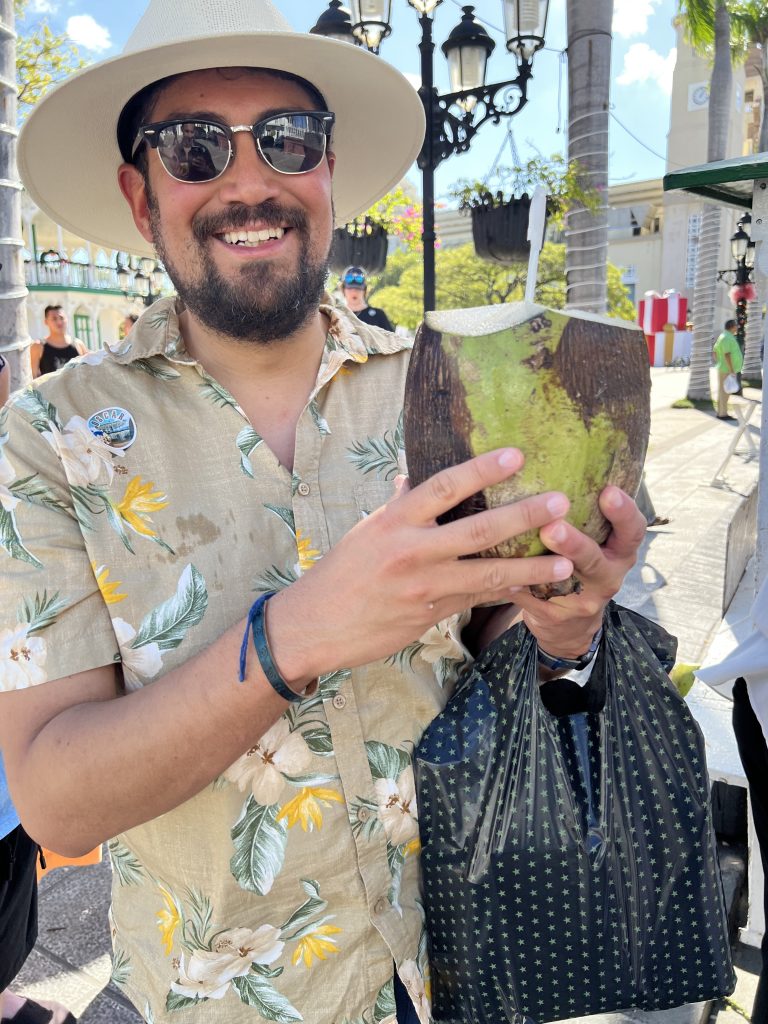 Chris Vinson became a librarian almost by accident. After graduating from Winthrop University with a bachelor’s in English, he was planning to go on to graduate school in English and perhaps on to earn a Ph.D., but he accidentally missed the GRE subject exam that was required to get into graduate school because he had the date wrong.
Chris Vinson became a librarian almost by accident. After graduating from Winthrop University with a bachelor’s in English, he was planning to go on to graduate school in English and perhaps on to earn a Ph.D., but he accidentally missed the GRE subject exam that was required to get into graduate school because he had the date wrong.
Vinson had worked as a student worker in the library at Winthrop throughout his undergraduate career, and since it was a field he enjoyed and was familiar with, he decided to change gears and attend library school instead, earning his Master of Library and Information Science degree from the University of South Carolina.
“During my time at Winthrop, I worked as a circulation assistant at the library at the desk, and then in technical services and government documents. So really by the time I graduated college, I had already worked in most areas of the library,” he said.
He originally thought he would be a subject-area librarian, but his career path took another unexpected turn, and he wound up working on the technology side of libraries. During graduate school, Vinson got an internship with PASCAL, the consortium of academic libraries in South Carolina.
“That was really great because it allowed me to begin working with technology and digital libraries. I was responsible for the South Carolina Digital Library at that point,” he said.
After graduation, Vinson became a systems librarian at the College of Charleston, where he worked for three years. A Spartanburg native, his family was in the Upstate, so in 2011, he made the move to Clemson to be closer to them.
He was originally hired at Clemson as a digital projects librarian, but he has worked his way up over the years and now serves as head of digital strategies for Clemson Libraries, overseeing the team responsible for all the technology that makes the Libraries run, from technical support to managing all the systems that help people find items in the collections to the physical hardware in the buildings.
“Digital strategies is really just an outgrowth of library IT, but taking a wider organizational approach to it. We fix computers and all of those ‘normal’ IT-related things, but we’re also more involved in how technology can enhance things within the Libraries and people’s jobs, and how can we make sure that’s reflected strategically in what we’re doing,” Vinson said. “How can we contribute to making things work better administratively in the Libraries? I think digital strategies is not necessarily about finding the newest, greatest technology solution, but finding the one that best fits our needs.”
Vinson has also been involved in leading several projects related to digitization of materials, such as the Open Parks Network (OPN), a partnership between Clemson Libraries and the National Park Service to digitize images, artifacts and documents related to the history of national parks and other national heritage sites. The Open Parks Network was a large part of the reason he came to Clemson in 2011, as the project was just getting started.
“Part of what attracted me to the position was the opportunity to work on that project, and it’s really been part and parcel of my job since I started here,” he said. “I love parks … getting to work with the National Park Service in a way that helps them and getting to see all the cool materials that they have move from their archives to the web has been a really cool experience. It’s probably the best part of my job.”
The OPN has now digitized more than 1 million images, documents, maps and other items for the National Park Service.
Vinson’s love of parks also led him to start the partnership with the South Carolina State Parks system, which allows patrons to check out state parks passes from the Libraries. He realized a lot of public libraries had parks passes available for check out, and he thought it would be a great resource for students, faculty and staff.
“I just love that it’s an opportunity for students, many of whom are not from this area, to see the natural beauty of our state parks that are right in their backyard,” he said. “It doesn’t cost a lot to get into the parks, but to a student, every dollar matters.”
Another project Vinson is heavily involved with is Deeds Unbound, an initiative to digitize 19th-century land deeds and other documents in Pickens County that list enslaved people as property. The project is a collaboration with faculty in the Department of English and the Department of History in Geography, as well as the Pickens County Register of Deeds. The group has applied for grant funding to expand their work beyond Pickens County to digitize deeds from across the state.
Outside of work, Vinson enjoys traveling, especially internationally, but he would also love to visit every U.S. state.

